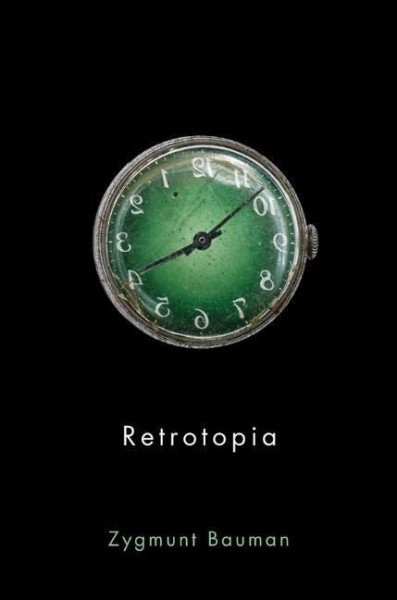
Retrotopia
Kurzinformation
inkl. MwSt. Versandinformationen
Artikel zZt. nicht lieferbar
Artikel zZt. nicht lieferbar

Beschreibung
We have long since lost our faith in the idea that human beings could achieve human happiness in some future ideal state - a state that Thomas More, writing five centuries ago, tied to a topos, a fixed place, a land, an island, a sovereign state under a wise and benevolent ruler. But while we have lost our faith in utopias of all hues, the human aspiration that made this vision so compelling has not died. Instead it is re-emerging today as a vision focused not on the future but on the past, not on a future-to-be-created but on an abandoned and undead past that we could call retrotopia. The emergence of retrotopia is interwoven with the deepening gulf between power and politics that is a defining feature of our contemporary liquid-modern world - the gulf between the ability to get things done and the capability of deciding what things need to be done, a capability once vested with the territorially sovereign state. This deepening gulf has rendered nation-states unable to deliver on their promises, giving rise to a widespread disenchantment with the idea that the future will improve the human condition and a mistrust in the ability of nation-states to make this happen. True to the utopian spirit, retrotopia derives its stimulus from the urge to rectify the failings of the present human condition - though now by resurrecting the failed and forgotten potentials of the past. Imagined aspects of the past, genuine or putative, serve as the main landmarks today in drawing the road-map to a better world. Having lost all faith in the idea of building an alternative society of the future, many turn instead to the grand ideas of the past, buried but not yet dead. Such is retrotopia, the contours of which are examined by Zygmunt Bauman in this sharp dissection of our contemporary romance with the past. von Bauman, Zygmunt (Universities of Leeds and Warsaw)
Produktdetails

So garantieren wir Dir zu jeder Zeit Premiumqualität.
Über den Autor
Zygmunt Bauman (1925-2017) was Professor Emeritus of Sociology at the University of Leeds.

- Kartoniert
- 369 Seiten
- Erschienen 2016
- Peter Lang Group AG, Intern...

- hardcover
- 192 Seiten
- Erschienen 2024
- König, Walther

- paperback
- 350 Seiten
- Erschienen 2020
- Independently published

- hardcover
- 104 Seiten
- Erschienen 2007
- Nobody

- Gebunden
- 112 Seiten
- Erschienen 2020
- Splitter-Verlag

- paperback
- 352 Seiten
- Erschienen 2006
- Grove Press

- hardcover
- 144 Seiten
- Erschienen 2002
- Schweers + Wall

- paperback
- 356 Seiten
- Erschienen 2017
- Calida Lux Publishing

- paperback
- 212 Seiten
- Erschienen 2018
- Mohlberg, H

- Kartoniert
- 622 Seiten
- Erschienen 2014
- Heyne Verlag

- paperback
- 1 Seiten
- Erschienen 2000
- Random House Large Print


































